|
Year 3 at St John's C of E Academy, Coleford have been studying the work of Forest of Dean poets Joyce Latham and Catherine Drew. Joyce's poem 'The Water Carriers' took them back to her childhood, in the 1930s and 40s, when her home, like many in the Forest at that time had no running water: it was Joyce's job to go down to the spring-well with her father each morning to collect the water. The class learned that toilets for many people then were still outside affairs - a bucket under a bench in a shed down the garden. For some in the class it was something they had heard about before from their grandparents. Catherine Drew's work took them back to the early nineteenth-century. She loved to write about the riches of the natural world, as Joyce did too. The class studied a newly discovered poem by Catherine that has just come in to the Forest of Dean Writers Collection being established at the Dean Heritage Centre. The poem describes the different bird song heard and flowers seen in Spring-time. Catherine's other poems described the dramatic changes she saw in the Forest of Dean during her lifetime (1784-1867) under the forces of the industrial revolution. So, where better to go to bring all of this alive than the Dean Heritage Centre? Starting with a verse from her poem 'The Forest of Dean in Times Past, Contrasted with the Present' local history expert Jim Dean used exhibits in the museum to show how coal was once taken by horse-drawn railroads to small harbours on the River Severn to be shipped to cities such as Gloucester and Worcester - all as described in Catherine's poem. Jim took the children on a walk around Soudley to see the route of the tramroad, the old pack horse bridge, iron age hill fort, and finally the crossing keeper's cottage - part of the steam railway network that Catherine would have known towards the end of her life as something very modern! Year 3 groups then went to DHC's crafting hut to make model coal carts and Severn barges, as described in the poem, under the guidance of arts expert John Slater. The models display lines from Catherine's verse and will become part of a showcase event at St John's at the end of the school year. Before leaving the DHC the children got to take a peak into the backstage engine room of the museum - the archive and stores - with new member of the team Robyn Timmins. Amongst the treasures the students got to see were poems handwritten by Catherine herself, and her own hat that she wore to bed each night. These workshops are all part of the Forest of Dean Writers Collection project, supported by the National Lottery Heritage Fund, led by University of Gloucestershire's Reading the Forest project in partnership with Dean Heritage Centre. Huge thanks to Jim, John, Joanne and Robyn at DHC, and to Year 3 teacher at St John's Bernadette Lee. Thanks to the children of Year 3 too for making it such a fun day for all of us.
Findings from this pilot workshop will be used to help shape future education programmes at DHC. If you are a school that would like to visit the DHC to find out more about Forest of Dean history - including its writers and poets - contact: [email protected]
0 Comments
Celebrated, controversial, much missed - television dramatist Dennis Potter passed away thirty years ago this June, and as a celebration of his life and work University of Gloucestershire's Reading the Forest is teaming up with The Palace Cinema and Dean Heritage Centre to mark the anniversary.
On Sunday 9th June The Palace are screening in-full Potter's ultimate television masterpiece: The Singing Detective. Recognised by critics and fans alike as a tour de force of television drama writing and production the serial did much too to cement Potter's reputation in his native Forest of Dean. Large parts of the drama were filmed in the Forest and as with his other locally filmed works, local people were employed as extras. He was a hugely important figure in the development of British television, but he never forgot the people and places where he grew up. The event also marks the passing of the remarkable Michael Gambon last year. The screening is taking place thanks to the enthusiastic support of Andy and Karen, owners of The Palace Cinema, who have licensed the screening through the British Film Institute. The Palace, built in 1910 is one of the oldest purpose-built cinemas still operating in Britain, and Potter himself knew it as a youngster. The audience is being encouraged to come dressed as characters in the drama – detectives, spivs, doctors, nurses, patients, or in 1940s period clothing. The screening will be introduced (via video) by world renowned Potter expert and author Professor John Cook of Glasgow Caledonian University, a long-standing friend and consultant to the Potter Archive. John’s own research in the archive saw him author a recent paper demonstrating how Potter drew on several of his longstanding themes and ideas in his writing of The Singing Detective. Those attending the screening will also get to see some of the unique artefacts relating to the drama that are held by the Dennis Potter Archive. The screening is on Sunday 9th June 10am-6pm. Tickets available to pre-book online at https://cinderpal.com/cinderford/soon/ Professor John Cook's paper on his discoveries in the Dennis Potter achive can be read for free here: : chrome-extension://efaidnbmnnnibpcajpcglclefindmkaj/https://researchonline.gcu.ac.uk/files/72336635/Cook_J._R._2022_The_Country_Boy.pdf Friday (17th November) saw the official launch of our exciting new partnership project with Dean Heritage Centre: The Forest of Dean Writers Collection Project. Reading the Forest friends and volunteers, joined trustees from the DHC for tea, coffee and cakes to hear news that this new two year long project had just received the go ahead from The National Lottery Heritage Fund. The project will bring around 400 artefacts relating to Forest authors into the care and custodianship of the DHC. The new collection will include hand-written manuscripts, early drafts, notebooks, photographs, and personal items. There are poems, play scripts, novels and children's stories, some never published or seen before, some written in Forest dialect. The materials came to light during Reading the Forest's work with authors' families and literary estates, and with members of the local community. All were looking for a safe home for their unique collections, but also that the material might be properly researched, understood, AND used to benefit the Forest community - especially its young people. And so, the idea of Forest of Dean Writers Collection (FODWC) project was born: to save and conserve these unique artefacts; interpret, curate and share them with the local community, visitors, and researchers; promote this creative culture of the Forest of Dean; and use the work and stories of their authors to inspire local young people. On Friday we were able to announce that The National Lottery Heritage Fund has awarded the project £133,873 of funding to make it all happen. University of Gloucestershire will lead, working in partnership with Dean Heritage Centre. The new collection will be based at the museum in Soudley, but the project will also see exhibitions and events happening around the Forest. In officially declaring the new project 'launched' Simon Phelps, Vice Chair of Forest of Dean District Council, and a trustee at DHC, spoke about his father, Forest author Humphrey Phelps. He talked about how precious the Forest's cultural heritage is, and how vital it is that we cherish it. The work in the new collection will span almost 200 years of Forest history, writing and ideas, and will include authors Catherine Drew, Valerie Grosvenor Myer, Leonard Clark, Harry Beddington, Humphrey Phelps, Gladys Duberley, F W Harvey, Dr Tandy, Fred Boughton, Winifred Foley, and Ralph Anstis.
If you've anything unique (a letter? an unpublished piece of writing? a photograph? or anything else...) relating to a Forest writer, stuffed in a drawer or squirrelled away in the loft - we'd love to see it! And of course, if you're looking for a new home for it.... 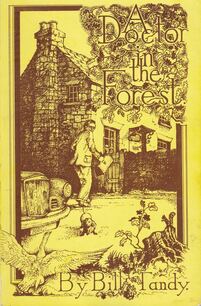 As the NHS marks it’s 75th birthday, it’s worth reflecting on several remarkable Forest books that give us an insight into the realities of the day-to-day frontline delivery of healthcare. They are portraits of that vital figure the General Practitioner, the doctor. Dr Bill Tandy and his family moved to the Forest of Dean in 1940, eight years before the formation of the NHS. He’d been living and working in India and was acquainted with several of those involved in the independence movement of the then British colony. Tandy’s book, ‘ Doctor in the Forest (1978) looked back on the early years of his practice in the Forest, describing pre-NHS doctoring, when sometimes a patient might only be able to pay ‘in kind’ – with produce form the garden or home-made wine – for a consultation. Tandy’s book is both humorous and anecdotal in parts, and his affection for both his patients – something reciprocated - and the Forest as a whole comes over clearly. Tandy’s book was in some respects a warm and welcome antidote to a more analytical and intellectual exploration of a doctor published a decade earlier. A Fortunate Man (1967) by author and critic John Berger with Swiss photographer Jean Mohr was part documentary, part novelistic portrayal of ‘Doctor John Sassall’, the thinly disguised real life Dr John Eskell, GP for St Briavels and district. The book sought to examine in detail the particular relationship between a rural doctor and his patients: distant in terms of professional status from his patients, yet intimately knowing of their bodies, their lives and the life of the village community. Critically acclaimed, it upset many local people because of Berger’s arguably ham-fisted attempts to describe the distinctiveness of the Forest and Foresters. Both A Fortunate Man and A Doctor in the Forest inspired follow-up books by different authors. In 2018 came Another Doctor in the Forest (2018) by local GP Dr Chris Nancollas, and in 2022 writer and documentary maker Polly Morland published A Fortunate Woman. Morland’s book, with photographs by Richard Baker is partly an homage to Berger’s work, inspired as she acknowledges by finding a copy fallen behind her parents’ bookshelves. Similar in structure, approach and psychological probing to the book that inspired it, the book brings us right up to date, its female covering Eskell’s old patch as the COVID pandemic takes hold. Whilst Morland’s contemporary prose is both refreshing and enlightening, all of the books discussed make for a rewarding read, and all paint a picture of that part of the NHS most of us are familiar with. 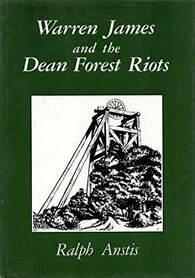 In 1986 local author Ralph Anstis published his detailed account of events that shook the Forest community in the early decades of the nineteenth century. Warren James and the Dean Forest Riots told the story of an uprising in the Forest that saw thousands of men, women and children systematically tear down miles of Crown enclosure banks and fences over the period of a week. Their leader was local miner Warren James, and it was James with just a handful of other men that paid the ultimate price, at trial being condemned to death – though this was later commuted to transportation to the British penal colony of Van Diemen’s Land (present-day Tasmania) off Australia. Whilst fellow ‘rioter’ John Harris eventually made his way back to the Forest, James, having been pardoned in 1836, failed to make it home, dying in Hobart in 1841. Ralph’s book was responsible for reviving popular interest in the largely forgotten Dean Forest Riots and their leader Warren James. In 2010, as the Forest community prepared to defeat Government plans to sell off the public forest estate, James’s story resonated once again, and an event was held at Hopewell Colliery with exhibition, talks, music and drama. Around the same period The Fountain Inn, Parkend commissioned local artist Tom Cousins to paint a mural depicting James on a wall inside the pub. Ralph’s book was not though the first account of the riots. In the very same year, they took place The Life of Warren James, the Reputed Champion of the Forest of Dean was published, the author being simply named as ‘a resident Forester’. The identity of the writer remains a mystery to this day, though academic Ian Wright has speculated that it may in fact have been Philip Ducarel. Ducarel, born in India, had moved to the Forest sometime around 1813 and quickly established himself amongst the local gentry. As a magistrate he had accompanied surveyor Edward Machen in reading the Riot Act during the destruction of the enclosures. He was also a writer, of poetry, and in 1836 he published his epic Forest-set poem De Wyrhale that included very positive descriptions of the Foresters and their ‘stout hearts of brass’. 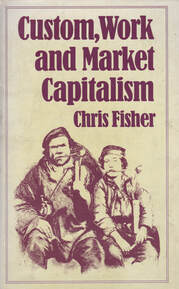 James and the riots would feature many years later in Custom, Work and Market Capitalism: The Forest of Dean Colliers, 1788-1888 by Chris Fisher. In this detailed analytic history Fisher explains the position that Forest of Dean Free Miners such as Warren James were in during the early 1800s. Their traditional privileges to exclusively mine in the Forest, transport iron ore and coal, and to graze their animals were being eroded. The popular participation in the events of 1831 demonstrated how embedded the miners’ rights were with those of the wider Forest community of the time. 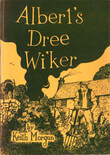 For all the literary expositions on the causes and events of the 1831 riots, the most engaging and inspiring surely has to be Keith Morgan’s poem ‘Warren James: Freedom Fighter’. The poem came into print in his collection Albert’s Dree Wi’ker the year before Ralph’s book and continues to be performed by Keith to this day. Recently Ian Right (above) published The Life and Times of Warren James: a freeminer from the Forest of Dean (now in it's 3rd revised edition). Ian is also one of a small group of enthusiastic volunteers who have come together with the aim of keeping the memory of James alive by establishing an annual Warren James Day on the 8th June (the first day of the ‘riots’). We are told more details of the day will be revealed over the coming weeks. Warren James place in the history of the Forest may be secure for some time to come. In 1944 Leonard Clark returned to the Forest to find his beloved Chestnuts Wood clear-felled: “There, to my horror, I saw a bald hill with just a thin ring of trees on the top. My eyes flooded with tears. So this was all that remained of my Chestnuts Wood” (A Fool in the Forest, p11). Startling as this present-day scene is near Worrall Hill, thankfully it’s a long overdue harvest of chestnut coppice – so soon new shoots will be sprouting, and in just a few years chestnut trees will be reaching for the sky again and resounding with bird song in spring. Leonard Clark wrote three fantastic books looking back at the Forest of his youth. In those books, and in many of his poems he brilliantly evokes the deep and rewarding relationship we can have with nature and landscape, ever changing as it is. Successful author, poet, editor he is also a hugely important figure in the history of Forest of Dean writing – someone to inspire the next generation of Forest writers?
Very sad news that Dick Brice has passed away. A talented and much-loved poet, songwriter, and performer he started his musical career as a teenager playing the ukulele, performing George Formby songs with a school friend around local youth clubs. Dick qualified as a teacher and work took him away from the Forest for a while, but he later returned to the area. By then Dick and wife Di were singing in a four-part harmony group, performing traditional English songs, touring around pubs and clubs. Dick would occasionally write music for old broadsheet verses and stories to turn them into song. With the demands of family life making touring for the couple more challenging Dick began to perform on his own, and in the early 1980s he was asked to appear alongside local writers Winifred Foley, Harry Beddington, and Keith Morgan on the iconic Forest Talk album. Dick cited this as the beginning of him writing songs in dialect and about the Forest. Several solo albums followed. Whilst his songs about the landscape, people, places, and culture of the Forest, both comical and more serious, were hugely popular locally and further afield, Dick’s material was far from limited to local topics. Having the pleasure of seeing Dick perform you might just as easily hear his musical rendition of a W. B. Yeats poem as you would hear him sing about one his great loves: sailing. When Dick took early retirement as a schoolteacher, he taught evening classes in sailing and navigation. He would also occasionally deliver yachts by sailing them to their new owners. In 2021 Dick had his first collection of poems published by local imprint Yorkley Press. The collection featured some of his most popular songs in verse form, such as perhaps his most loved local ‘anthem’ The Land Between Two Rivers. There were new poems too, and Dick continued to write more following the book’s publication. As Dick made clear, he was by then in his ‘90th decade’ so perhaps inevitably several of the poems were reflections on mortality. Dick has left us with a treasure-trove of music, songs and poetry that encapsulate so much of what we love, laugh about and sometimes lament on losing, about the Forest of Dean. He was a much loved, and hugely talented man, a Forester who will be deeply, deeply missed. The video is a recording of Dick reading his poem The Turn of the Tide. Dikc very kindly contributed to our last series of podcasts and you can hear him discussing his career and writing over on the podcast pages here. 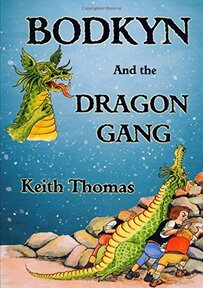 This enchanting story for younger children follows a gang of boys who befriend and rescue a Welsh dragon trapped deep underground in the Forest of Dean. The young boys are iron miners, and as the author points out in his introduction, children were still employed in mines in the nineteenth century despite legislation passed in 1842 banning boys under 10yrs of age from working underground (it outlawed women and girls of any age working underground). Author Keith Thomas explains how he was inspired to write the book by an artefact on display at Clearwell Caves: “I was a close friend of Ray Wright who was the owner the caves and opened them up to visitors. In one of the display cases there are the remains of a pair of tiny children's shoes found during explorations of the deep underground iron mine levels. These would have belonged to one of the children working there. I pictured the children who had to work in such terrible conditions and it saddened me to think of their lives.” Despite the real-life background to the story and its setting which is almost entirely underground, it is a million miles from the type of gritty ‘misery lit’ genre more often associated with Victorian working lives. It is instead a lovely story of friendship and adventure as ‘billy boys’ Tom and Matty, and their gang of juvenile workmates struggle to work out how they can get their new-found friend Bodkyn out of the mine. The style of writing Keith has used is well suited to any newly-independent readers, and there are illustrations throughout. Equally it works as a bedtime story for parents/carers to read to young ones – and despite its underground setting there’s little that should prompt any nightmares! Apart from a few Welsh turns of phrase from dragon Bodkyn the boys speak in standard English, no doubt to aid the text’s readability. That said specialist mining and other local terms do crop up – such as ‘nellie’ and ‘scowles’ – and Keith has helpfully listed all of them with clear explanations at the front of the book. Published originally in 2008, in the intervening years Bodkyn and friends has reached readers as far away as Australia with Keith himself giving talks in schools on the book and the real history behind it in both Perth and Sydney. 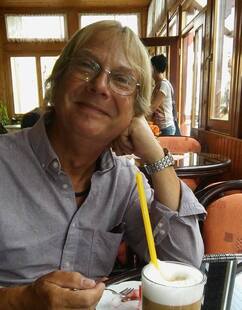 Keith is now about to publish a book very much aimed at adults, based on nearly thirty years of in-depth research on the life of Robert Mushet. It was Keith that designed and manufactured the wrought-iron Mushet Walk Archway in Coleford that commemorates the lives of David and Robert Mushet' and the huge contribution they made to the Iron and steel industries. We’ve heard rumours that Keith’s new book has prompted interest from a production company looking to turn it into a television documentary. We’ll keep you posted on that of course! In the meantime, if you want to pick up a copy of ‘Bodkyn and the Dragon Gang’ (a Christmas present perhaps?) it can be purchased through the usual online retailers, is also available to loan from Coleford Library.
The Forest of Dean writer whose work has been seen by the most people by some way, with audiences in the millions, must surely be Dennis Potter. The Singing Detective is back on TV, launching with a triple bill last night on BBC Four. If you missed it you can still watch on iPlayer – but it’s for a limited period only (29 days from today - 1st Dec) so don’t leave it too long! It’s being shown again as part of the British Film Institute’s 100 BBC TV Gamechangers, and how fitting that it should be one of Potter’s dramas in which the Forest played a crucial part. As the afflicted author Phillip Marlow lies in a hospital bed, memories of his Forest of Dean childhood intermingle with the plot and characters of his hard-boiled detective fiction. Marlow suffers from the same dreadful chronic condition that Potter did - psoriatic arthropathy – and there are many other elements of the story that are drawn from the author’s life. But, as Potter pointed out, incidents in the author’s life are the raw materials on which he draws, and we should not draw too many conclusions from what appears. Local extras featured as well as local locations and you can hear Forest location scout, ex-teacher John Belcher talking about that here:
The current screening marking 100 years of the BBC was preceded with actor Alison Steadman reflecting on her experience of filming, and, as she points out weeks of rehearsal prior to filming – a luxury rarely afforded TV actors today. Like many of the programmes from the past that make up the Gamechangers list, there are moments in The Singing Detective that may well jar with contemporary viewers, but worth remembering this is television from another time, depicting the attitudes of society at the time – and indeed in this case is arguably a critiquing of them. As Steadman points out, television was made differently then too, longer in the marking, as well as the work itself taking its time to portray characters and scenes, and tell its story. So, if you’ve not seen it, or it’s been a while, block out some time, sit back and enjoy a true masterpiece – from the pen of one of the Forest of Dean’s finest and most important authors.
|
Archives
June 2024
|






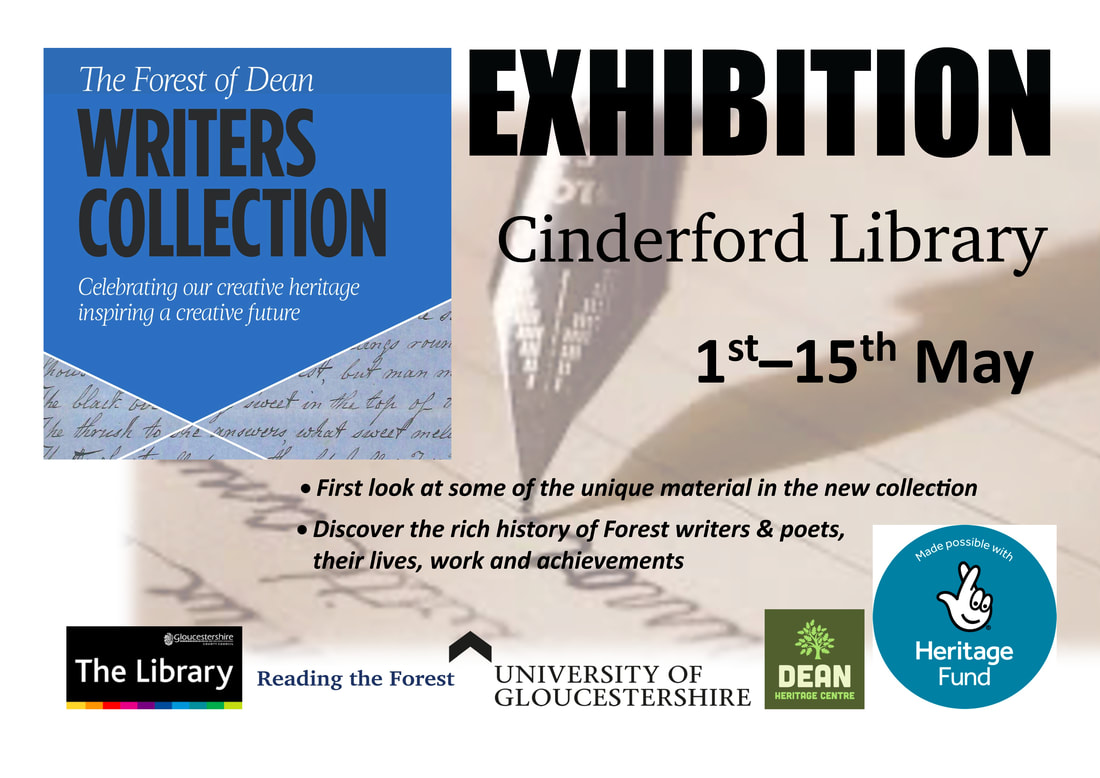
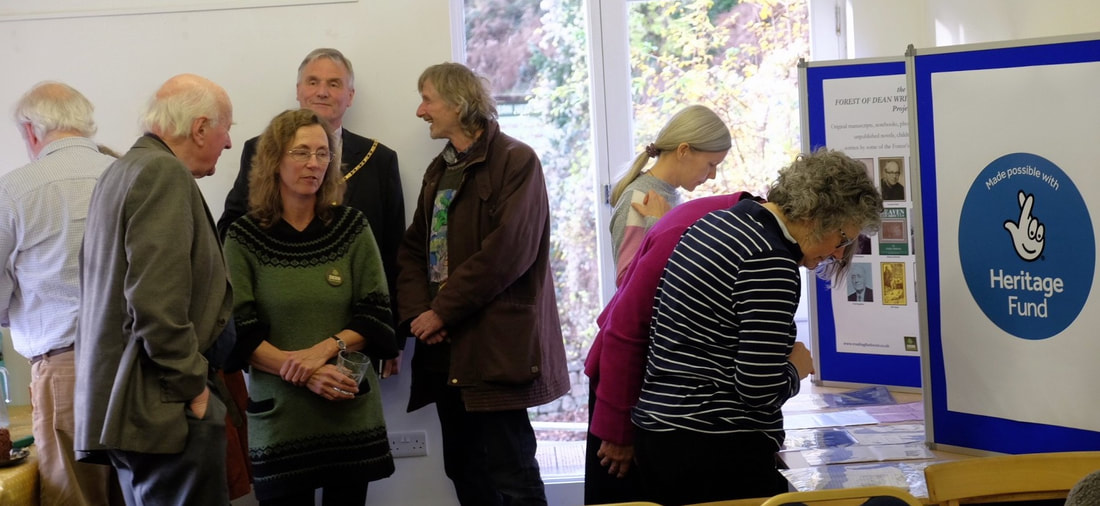
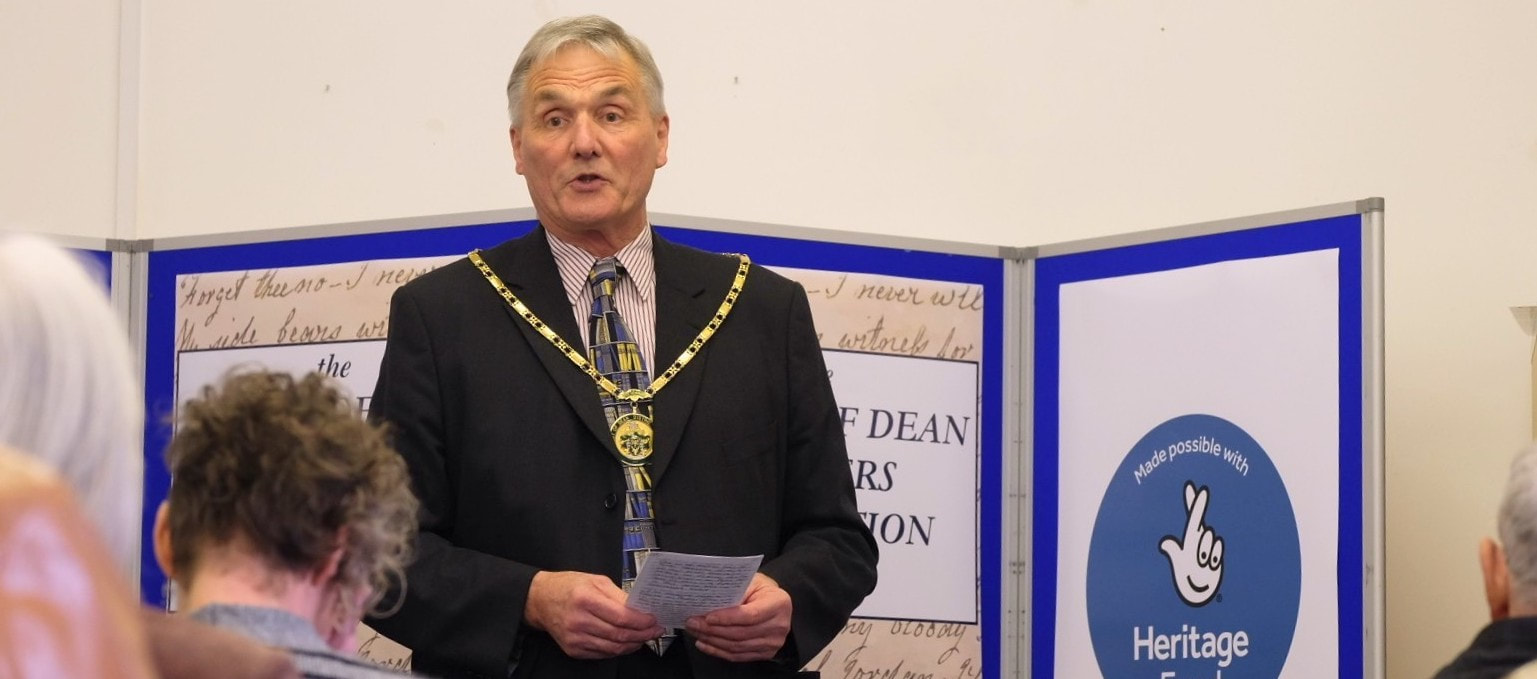
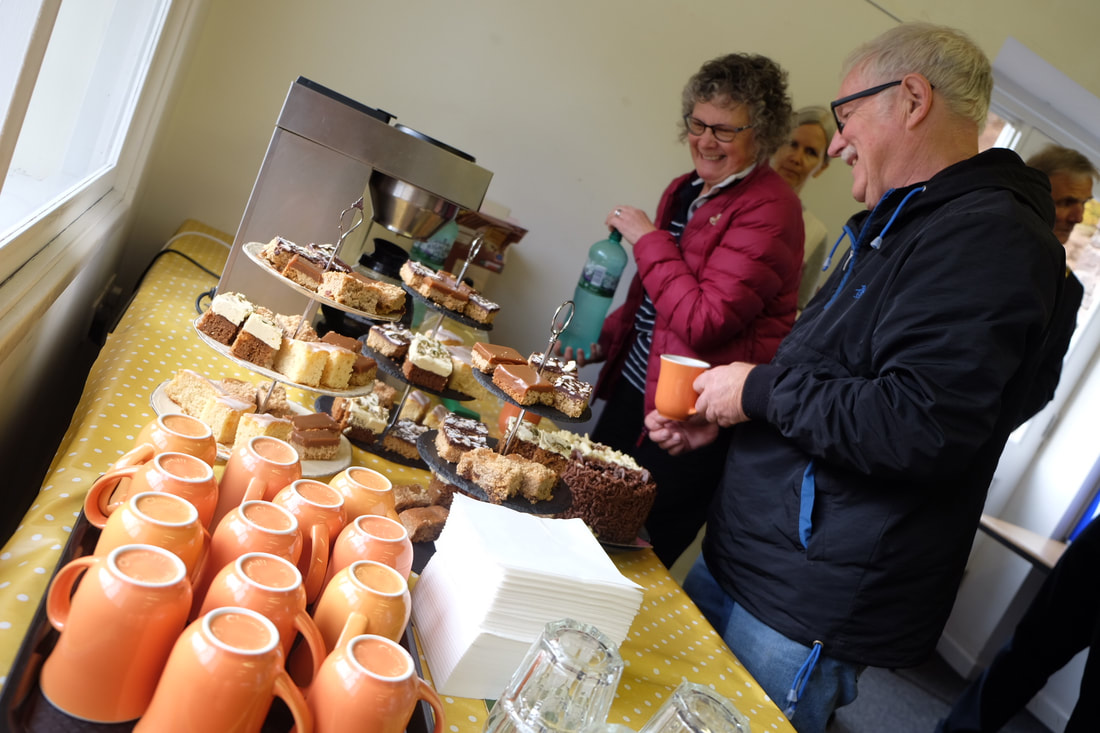
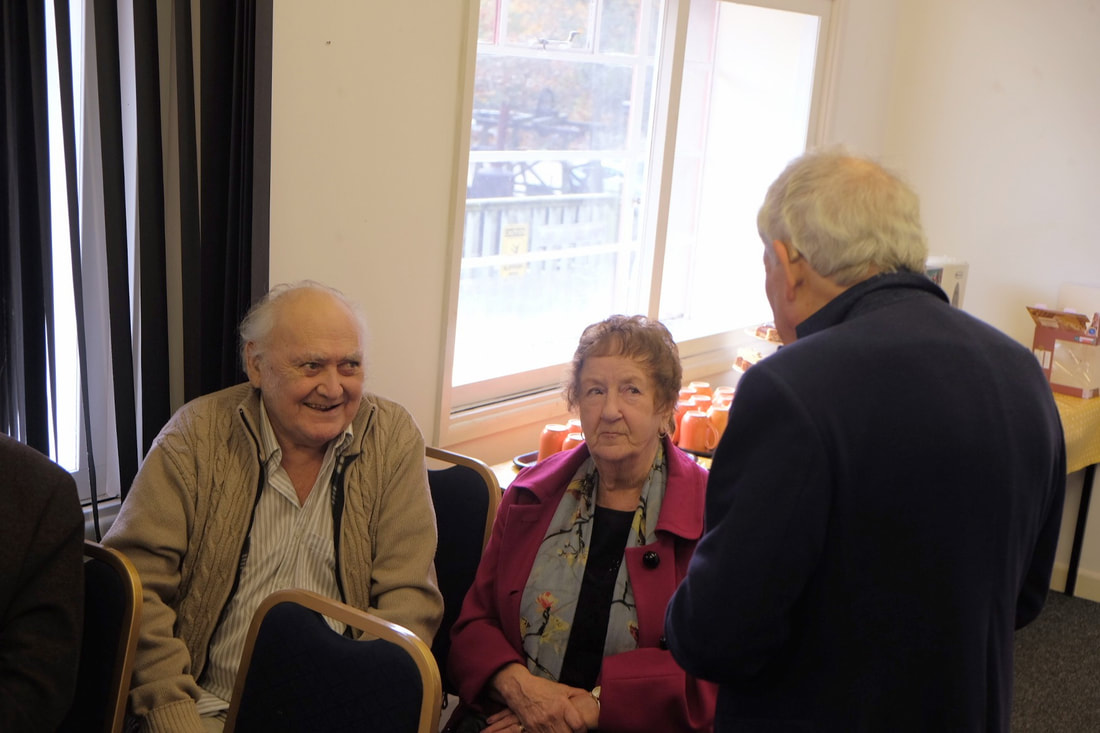
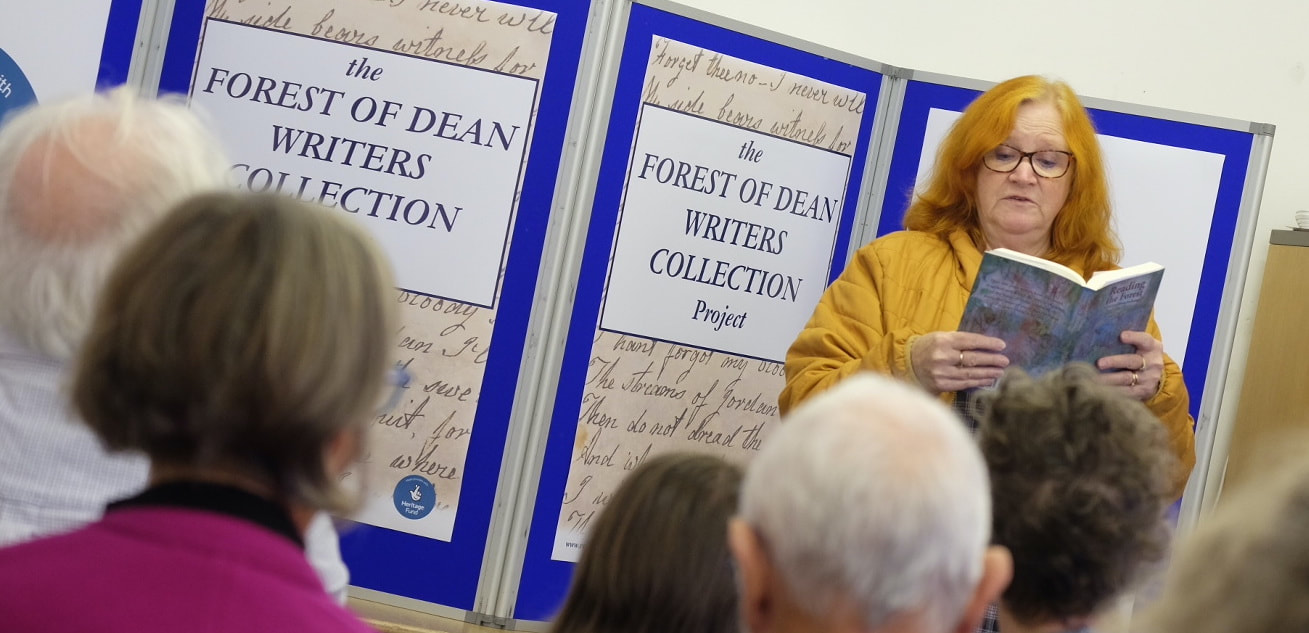

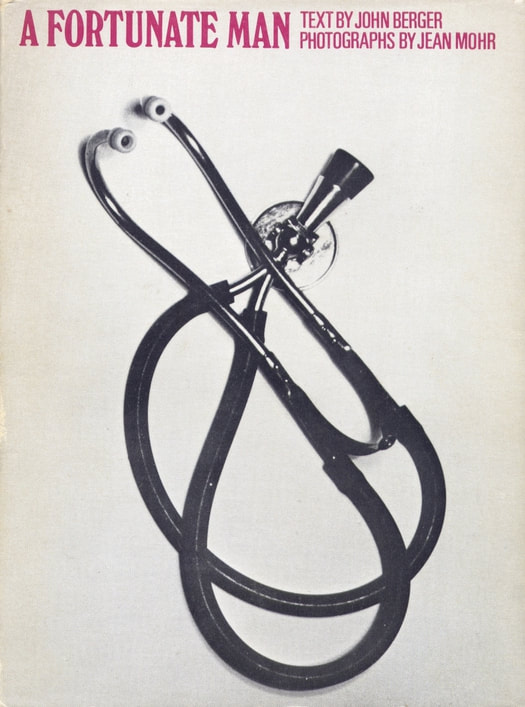
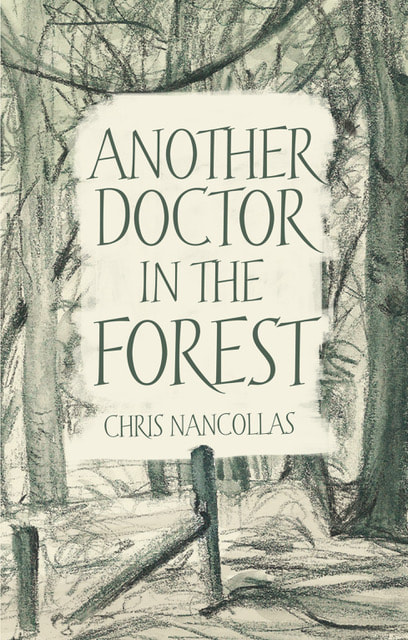
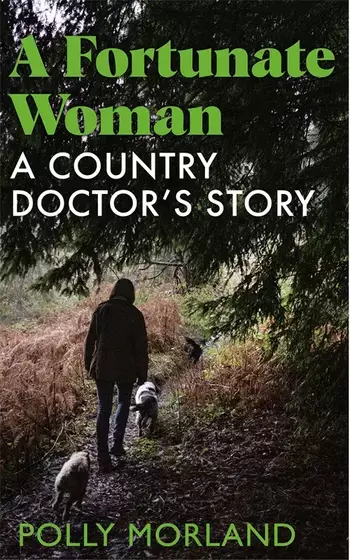
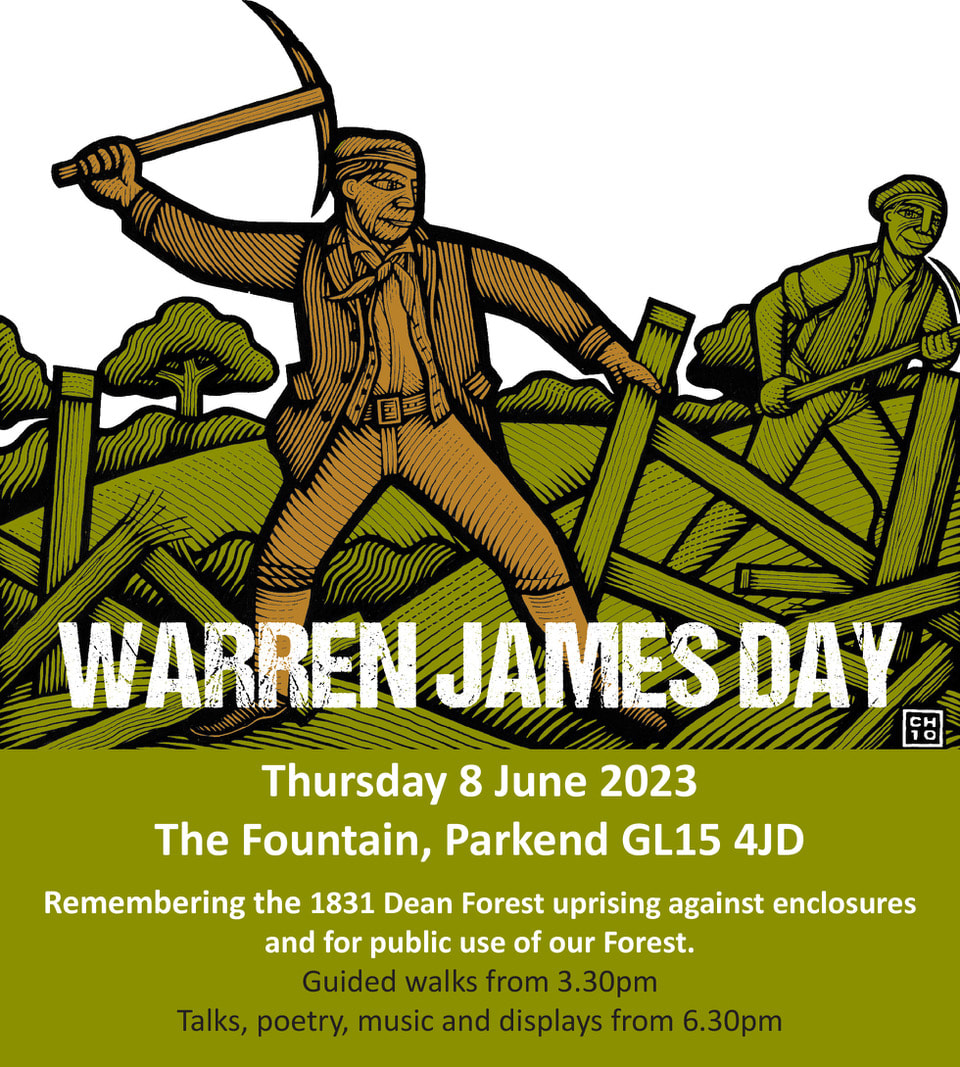
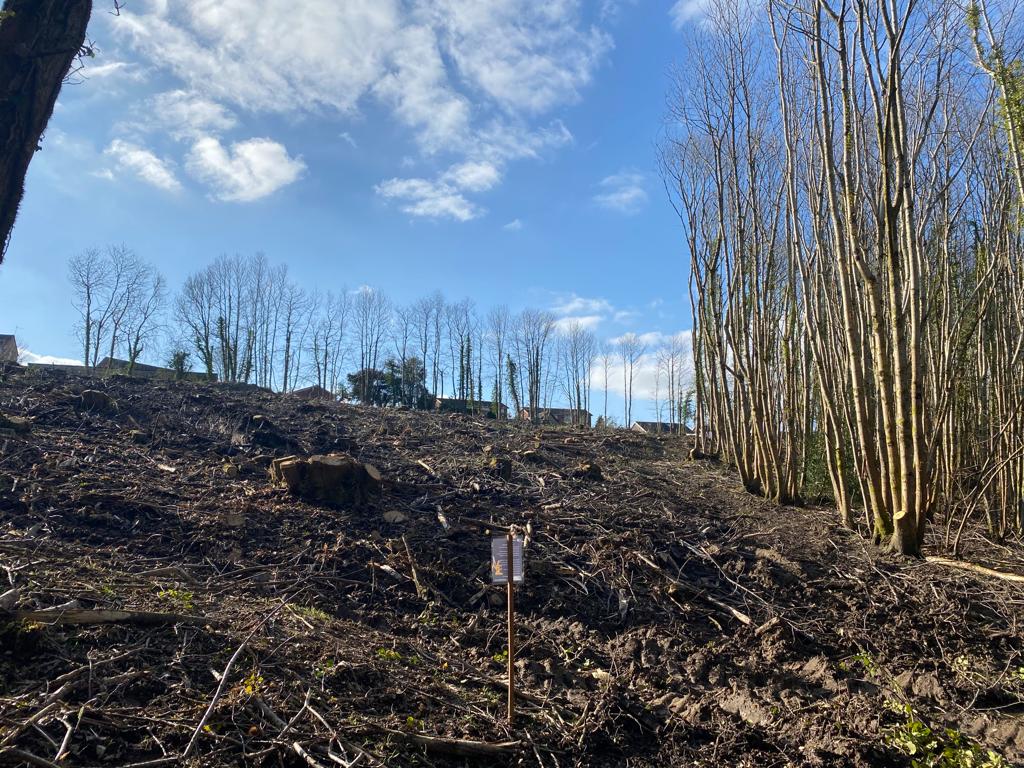
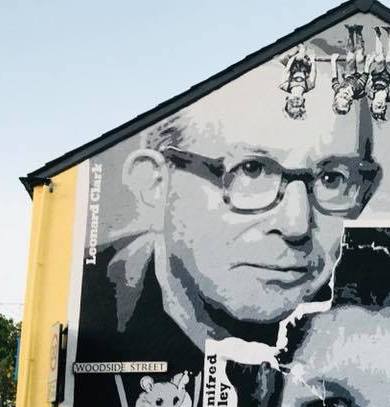
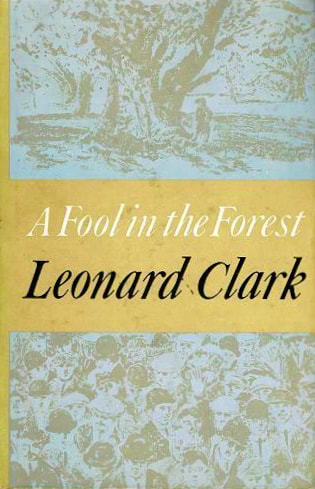


 RSS Feed
RSS Feed


